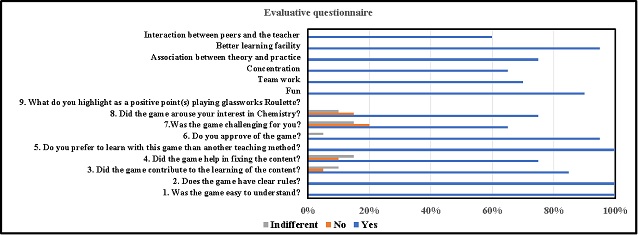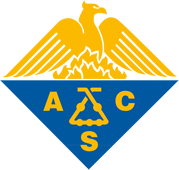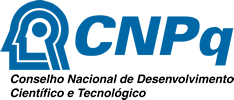Autores
Luz, L.R. (IFTO CAMPUS PARAÍSO DO TOCANTINS) ; Viroli, S.L.M. (IFTO CAMPUS PARAÍSO DO TOCANTINS) ; Candido, B.A.R. (IFTO CAMPUS PARAÍSO DO TOCANTINS) ; Carvalho, N.P. (IFTO CAMPUS PARAÍSO DO TOCANTINS) ; Costa, F.A. (IFTO CAMPUS PARAÍSO DO TOCANTINS) ; Gomes, N.B. (IFTO CAMPUS PARAÍSO DO TOCANTINS) ; Veloso, C. (IFTO CAMPUS PARAÍSO DO TOCANTINS) ; Rosa, T.O. (IFTO CAMPUS PARAÍSO DO TOCANTINS)
Resumo
PowerPoint is a program that can become an educational object used in the
teaching process. The study evaluated a game developed with the PowerPoint
program for teaching glassware used in the laboratory. The research was carried
out in an exploratory and descriptive way with the intention of evaluating the
game applied to 40 students of the 1st year of high school. After the game, a
questionnaire was applied. The game presented satisfactory results, contributing
to the learning of the name and function of the glassware. The glassware
Roulette game showed satisfactory results, where all items evaluated presented
values equal to or greater than 65% of approval. The game produced helped in the
fixation, contributing to the learning process, providing a pleasant and fun
atmosphere.
Palavras chaves
Powerpoint; New technologies; Chemistry teaching
Introdução
The use of innovative teaching practices in the classroom is necessary to arouse
students' interest so that learning is not monotonous, mechanical and tiring
(OLIVEIRA et al, 2018a). Traditional teaching strategies do not address the
difficulties presented by students and do not satisfactorily contribute to the
quality of learning (OLIVEIRA et al. (2018b). According to Garutti and Ferreira
(2015) the introduction of New Information and Communication Technologies -
NTICs, in the pedagogical environment, provides more opportunities than
traditional class models. The use of technological fermentations used in the
classroom help the pedagogical practice of teachers and stimulates interest in
the contents taught to students (CASTRO, DIONIZIO e SILVA, 2015; OLIVEIRA,
SOARES e VAZ, 2015). Among these technological tools, virtual didactic games
stand out as a possibility for teaching the contents of the Chemistry subject,
as it is a great pedagogical strategy, with engaging language establishing the
learning of various skills (LEÃO et al., 2019). Games are examples of learning
objects inserted in NTCIs that collaborated with the teaching and learning of
the s students promoting the development of Chemistry content in a simple way
through creative classes close to the student's daily life (GONÇALVES et al.
2019; OLIVEIRA et al. 2019). Microsoft PowerPoint is a program used to create
graphic presentations that can become an educational object used in the teaching
process (CRISÓSTOMO et al, 2018). Faced with the need to insert a new learning
object, this study evaluated a glassworks roulette game developed with the
PowerPoint program for teaching glassworks used in the laboratory.
Material e métodos
The study was carried out in an exploratory and descriptive way with a
qualitative and quantitative approach (GIL, 2008) with the intention of
evaluating a game entitled "Roleta das Vidrarias" developed with the Microsoft
PowerPoint program for teaching recognition, usability and applicability of
glassware and equipment. used in the experimental activities of Chemistry
classes. The activities took place in the first half of 2022, during the months
of February, March and April. The research was carried out at the Federal
Institute of Education, Science and Technology of Tocantins, Paraíso do
Tocantins campus. involving 40 students of the 1st Year of Integrated High
School in Agroindustry. Students of the 5th period of the Degree in Chemistry in
cooperation with students of the 6th period of the Information System Course
created and applied the game in the 1st year of the Integrated Medium in
Agroindustry. The research started in the classroom with the division of the
class into groups containing 4 members, delivery of a table containing the
names, usability and applicability of the glassworks and equipment used in the
laboratory, explanation of the rules of the game and the game Roulette of the
glassworks. for each group. After the application of the game, an evaluation
questionnaire was applied with the following closed questions: 1. Was the game
easy to understand? 2. Does the game have clear rules? 3. Did the game
contribute to the learning of the content? 4. Did the game help in fixing the
content? 5. Do you prefer to learn with this game than another teaching method?
6. Do you approve of the game? 7. Was the game challenging for you? 8. Did the
game arouse your interest in Chemistry? 9. What do you highlight as a positive
point when playing glassworks Roulette?
Resultado e discussão
Graph 1 informs the students' answers in relation to the evaluative
questionnaire applied to the students to learn about the use of the Roulette das
Vidrarias game. Figure 2 represents the stages of the game. According to the
results observed in Graph 1, the glassware Roulette game was easy to understand
(100%), with clear rules (100%), contributing to the learning of content (85%),
helping to fix the content (75 %), was preferred as a learning methodology over
other teaching methods (100%), approved by students (95%), with a challenging
character (65%), arousing interest in the discipline of Chemistry (75%) and as a
positive points ease of learning (95%), fun (90%), association between theory
and practice (75%), teamwork (70%), concentration (65%) and interaction between
colleagues and the teacher (60% ). The game contributed to the learning,
usability and applicability of the glassware used in the laboratory, as it was
satisfactory, presenting results greater than or equal to 65% in all the
questions questioned. Crisóstomo et al, (2018) performing analysis of a game
produced in Microsoft Power Point also obtained satisfactory results after
evaluating the game by the students. Da Silva et al, (2016) using a game as an
alternative proposal for teaching laboratory glassware, declare that the
influence that games have on students makes the teaching and learning process
easier and more dynamic. Pires, Araujo-Jorge e Trajano, (2012) state that 55%
of students have already used PowerPoint in class and 62.3% opined that the use
of this software facilitates teaching and learning. Ferreira et al. (2019)
applying a high school game, reported fun classes, socialization among students,
knowledge and relaxation in the classroom.


Conclusões
The glassware Roulette game evaluated by the students of the 1st year of Middle
School Integrated in Agroindustry presented satisfactory results, where all the
evaluated items presented values equal to or greater than 65% of approval. The
game produced in the Microsoft PowerPoint program and applied helped in the
fixation, contributing to the learning of the content about recognition,
usability and applicability of glassware and equipment, used in the experimental
activities of Chemistry classes, promoted learning by providing a pleasant and
fun atmosphere.
Agradecimentos
To GOD, to the IFTO Paraíso do Tocantins campus
Referências
CASTRO, D.L.; DIONIZIO, T.P.; SILVA, I. G. Na trilha dos elementos químicos: o ensino de Química através de uma atividade lúdica. Revista Brasileira de Ensino de Química, v. 10, n. 1, p. 46-58, 2015.
CRISÓSTOMO, L. C. da S.; MARINHO, M. M; MARINHO, G. S; MARINHO, E. S. Avaliação de um jogo pedagógico desenvolvido com o powerpoint para o ensino de química. 23º Seminário Internacional de Educação, Tecnologia e Sociedade. v. 7 n. 1. P. 1-10. 2018. Disponível em: https://seer.faccat.br/index.php/redin/article/view/1067. Acesso em: 12 abr. 2022
DA SILVA, P, D.; Martins, S. D.; SILVA E SOUZA, S.H.; DA COSTA, B. I.C.; CARVALHO, de S. E.; DOS SANTOS S, A. Baralho das vidrarias como proposta alternativa para o ensino de vidrarias de laboratório. In: CONGRESSO BRASILEIRO DE QUIMICA, 56., 206, Belém. Anais Eletrônicos [...]. Belém, 2016. Disponível em: https://www.abq.org.br/cbq/2016/trabalhos/6/10142-18456.html. Acesso em: 21 maio 2022.
FERREIRA, J.F.; SANTOS, J.C.O.; FERREIRA, B.N.; FONSECA, L.L.S.A.; DANTAS, T.R.; AZEVEDO, A.S.; CARDOSO, M.L.M.S.; GARCIA, J.D.R.; ARAÚJO, J.V.S.; SANTOS, D. Utilização de jogos didáticos no ensino de funções orgânicas. In: CONGRESSO BRASILEIRO DE QUIMICA, 59., 2019, João Pessoa. Anais Eletrônicos [...]. João Pessoa, 2019. Disponível em: http://www.abq.org.br /cbq/2019/trabalhos/5/956-27759.html. Acesso em: 21 maio 2022.
GARUTTI, S.; FERREIRA, V.L. Uso das Tecnologias da Educação e Comunicação na Educação. Revista Cesumar Ciências Humanas e Sociais Aplicadas, v.20, n.2, p. 355-372. 2015. Disponível em: https://periodicos.unicesumar.edu.br /index.php/revcesumar/article/view/3973. Acesso em: 12 de abr. 2022.
GIL, A. C. Métodos e técnicas de pesquisa social. Antônio Carlos Gil. - 6. ed. - São Paulo: Atlas,2008.
GONÇALVES, A.C.C.; DE SOUSA, A.C.A.; CUNHA, J.N.F.; PATRÍCIO, J.C.; SCHWINGEL, J.F.; ESGALHA, S.P.V. Aplicação do jogo didático inclusivo missão orgânica no Instituto Federal de Mato Grosso. In: CONGRESSO BRASILEIRO DE QUIMICA, 59., 2019, João Pessoa. Anais Eletrônicos [...]. João Pessoa, 2019. Disponível em: https://www.abq.org.br/cbq/2019/trabalhos/6/999-27912.html. Acesso em: 21 maio 2022.
LEÃO, M.F.; FANTINELL JÚNIOR, M.; COSTA, A.N.S.; ALVES, A.C.T. Jogos didáticos no ensino de ciências: maneira diferenciada de ensinar e aprender sobre poluição. In: CONGRESSO BRASILEIRO DE QUIMICA, 59., 2019, João Pessoa. Anais Eletrônicos [...]. João Pessoa, 2019. Disponível em: http://www.abq.org.br /cbq/2019/trabalhos/5/956-27759.html. Acesso em: 21 maio. 2022
OLIVEIRA, P. D.; BARROSO, G, R.; CARVALHO, N, F.; RIBEIRO, dos S. K.; DONZA, S. M. V.; DE BRITO, V. M.; PANTOJA, C. M. Estudo de ligações químicas: aplicação de um jogo didático e sua importância para o ensino de química em um cursinho popular de Belém do Pará. In: CONGRESSO BRASILEIRO DE QUIMICA, 59., 2019, João Pessoa. Anais Eletrônicos [...]. João Pessoa, 2019. Disponível em: https://www.abq.org.br/cbq/2019/trabalhos/6/455-27262.html. Acesso em: 11 maio 2022..
OLIVEIRA, I. T. de; ZUCCHERATTO, K. M. C.; GRANADO, I. Z.; MELLO, P. H.de; OLIVEIRA, H. P. M. de. De onde vêm os nomes das vidrarias de laboratório? Química Nova. v. 41, n. 8, pp. 933-942. 2018a. Disponível em: <https://doi.org/10.21577/0100-4042.20170240>. Acesso em: 11 jun. 2022.
OLIVEIRA, A. L.; OLIVEIRA, J. C. P. DE; NASSER, M. J. S.; CAVALCANTA, M. P. O jogo educativo como recurso interdisciplinar no ensino de química. Revista Química nova escola. vol. 40 nº 2, p.89-96. 2018b. Disponível em: http://qnesc.sbq.org.br/online/qnesc40_2/05-RSA-82-16. Acesso em: 20 mar 2022.
OLIVEIRA, J. S.; SOARES, M. H. F. B.; VAZ, W. F. Banco Químico: um jogo de tabuleiro, cartas, dados, compras e vendas para o ensino do conceito de soluções. Química Nova na Escola, v. 37, n. 4, p. 285-293, 2015.
PIRES, F.E.S.S.; ARAUJO-JORGE, T.C.; TRAJANO, V.S. Avaliação sobre o uso do programa PowerPoint em sala de aula por estudantes da educação básica na rede pública. Revista Brasileira de Ensino de Ciência e Tecnologia, v.5, nº1. 2012. Disponível em : https://periodicos.utfpr.edu.br/rbect/article/view/862. Acesso em: 12 mar. 2022.
















